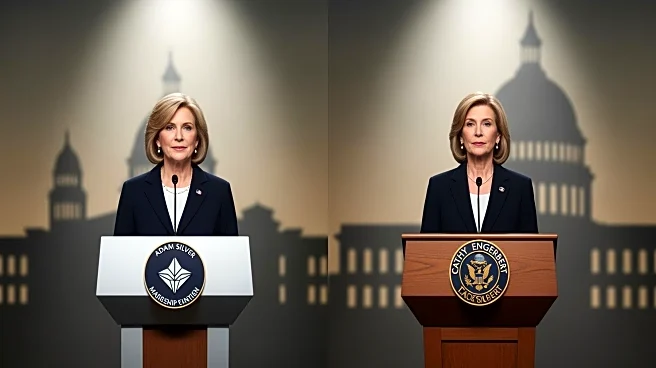What's Happening?
Candace Parker, a former Los Angeles Sparks star, has publicly contrasted her experiences with NBA Commissioner Adam Silver and WNBA Commissioner Cathy Engelbert. This discussion follows comments made by Minnesota Lynx star Napheesa Collier, who criticized
the leadership within the WNBA. Parker shared her insights during an episode of 'Post Moves with Candace Parker & Aliyah Boston,' where she emphasized the importance of relationships in professional sports. Parker noted that Silver has been consistently supportive, sending congratulatory messages and gifts, while she has not received similar gestures from Engelbert. Parker's remarks come amid ongoing discussions about leadership and player relations within the WNBA.
Why It's Important?
The comments from Candace Parker and Napheesa Collier highlight ongoing concerns about leadership and player relations within the WNBA. Parker's comparison of Silver and Engelbert's approaches underscores the importance of communication and support in fostering positive relationships between league officials and players. This issue is significant as it may impact player morale and the overall perception of the league. The contrasting leadership styles could influence future negotiations and collaborations between players and league management, potentially affecting the growth and development of women's basketball.
What's Next?
The discussion initiated by Parker and Collier may prompt further dialogue among WNBA players and officials regarding leadership and communication practices. It is possible that Engelbert and other league executives will address these concerns to improve relations with players. Additionally, the WNBA may consider implementing new strategies to enhance player engagement and support, which could lead to changes in league policies or practices. Stakeholders, including players, fans, and sponsors, will likely monitor these developments closely.
Beyond the Headlines
The broader implications of Parker's comments may extend to the cultural and ethical dimensions of sports leadership. The emphasis on personal relationships and communication highlights the evolving expectations of players regarding league management. This situation may encourage other sports organizations to reevaluate their leadership approaches and prioritize player engagement and support. The dialogue may also contribute to a larger conversation about gender dynamics in sports leadership, as the WNBA continues to navigate its role in promoting women's sports.
















